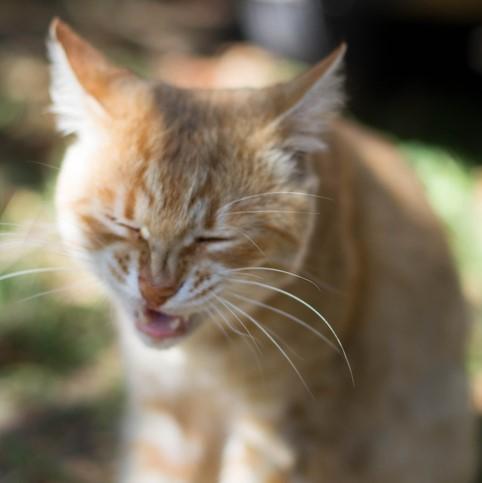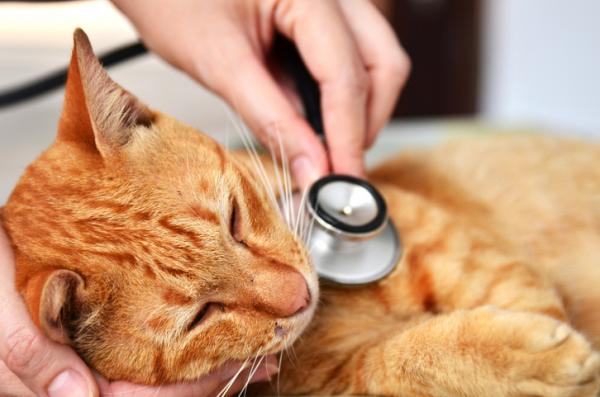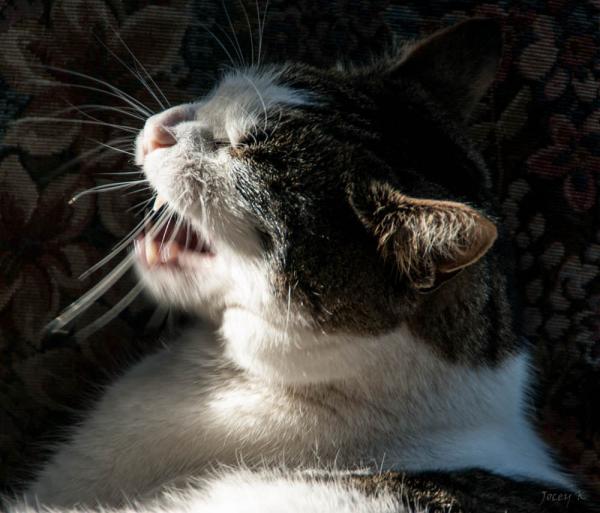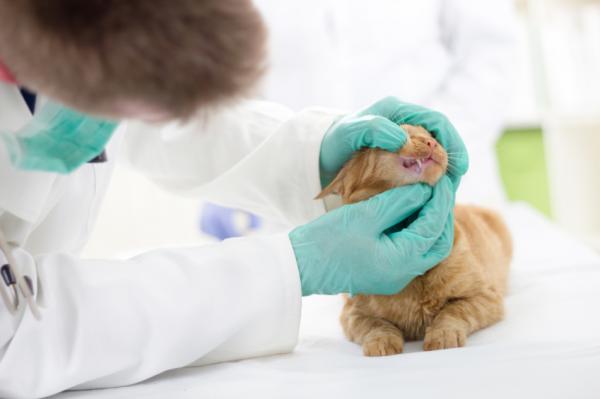Why does my cat sneeze?

A food allergy, tobacco smoke, a virus, a bacteria. anything can be the cause that is causing your cat not to stop sneezing. Like humans, cats sneeze because there are something that irritates your nose.
If it’s an occasional thing you do not have to worry about, but if the sneeze is continuous you should be aware of the rest of the symptoms and take it to the vet to avoid major problems.
In we are going to give you some keys in case you are one of those who ask why your cat sneezes although keep in mind that this is indicative, if you think your cat may have a disease only the veterinarian can diagnose and recommend a treatment.
Symptoms that may accompany sneezing
If you’re wondering why your cat sneezes, the first thing you should do is Observe if you have other symptoms to discard diseases from the list. The symptoms that can indicate a disease are:
- Yellow nasal discharge
- Greenish nasal discharge
- Red eyes
- Swollen eyes
- Eye discharge
- Respiratory problems
- Weight loss
- Apathy
- Fever
- Tos
- Inflammation of the ganglia
If your cat, in addition to sneezing, has any symptoms of those we have named, you should go to the vet quickly to examine it and send it a treatment before it gets worse.

Causes that can cause your cat to sneeze
As you have seen, sneezing can be accompanied by a multitude of symptoms, signs that something is wrong and that your cat may have some disease. Next we show you the most frequent causes that cause your cat to sneeze:
- Viral infections: the feline herpes virus and the calicivirus are those that cause the most infections in the respiratory tract of cats. These infections cause cats to sneeze a lot, as well as cough and even fever. They are contagious and can be transmitted from one cat to another. If they are not treated early, they can cause pneumonia.
- Feline immunodeficiency virusAlso known as feline AIDS, it is very common in cats that have contact with the outside. His defenses go down considerably and he can start to sneeze constantly, however, he will also present other symptoms such as fever, loss of appetite and weight, diarrhea, infections, or gingivitis, among others. Nowadays there are medicines to treat this disease and thus achieve that your cat has a full and happy life.
- Bacterial infections: like the previous ones, this type of infections are highly contagious and also affect the respiratory tract. Bacteria such as chlamydia or bordetella are very common and can be spread among cats that share a feeder or drinker.
- Allergy: Like humans, cats can also suffer from allergies. Any allergen, such as pollen, mites, meals, etc. It can cause your pussycat’s nose to become irritated and cause constant sneezing.
- Foreign objects in the nose: your cat may have a fluff or any other object lodged in the nostrils, until it is expelled will not stop stonning. Observe it well.

Treatment to avoid sneezing
At the vet they will help you discover why your cat sneezes and, depending on the diagnosis, they will recommend one treatment or another. In the case of being a bacterial infection you may be prescribed antibiotics to prevent them from becoming pneumonia.
In the case of being an allergy, you will first have to find out what causes it. If it is nutritional, they will recommend a change in your diet, eliminating what causes allergies. If it is for something else, they can prescribe antihistamines or a nasal decongestant.
In the case of a cold here you will find some home remedies for your cat to improve. For the feline immunodeficiency virus there are specialized medicines to guarantee the cat a healthy and long life.
However, remember that the key to correctly identify the health problem that affects your cat is essential go to the specialist.

This article is merely informative, in .com we do not have the faculty to prescribe veterinary treatments or make any kind of diagnosis. We invite you to take your pet to the veterinarian in case of any type of condition or discomfort.
If you want to read more articles similar to Why does my cat sneeze?, we recommend that you enter in our section of respiratory diseases.


